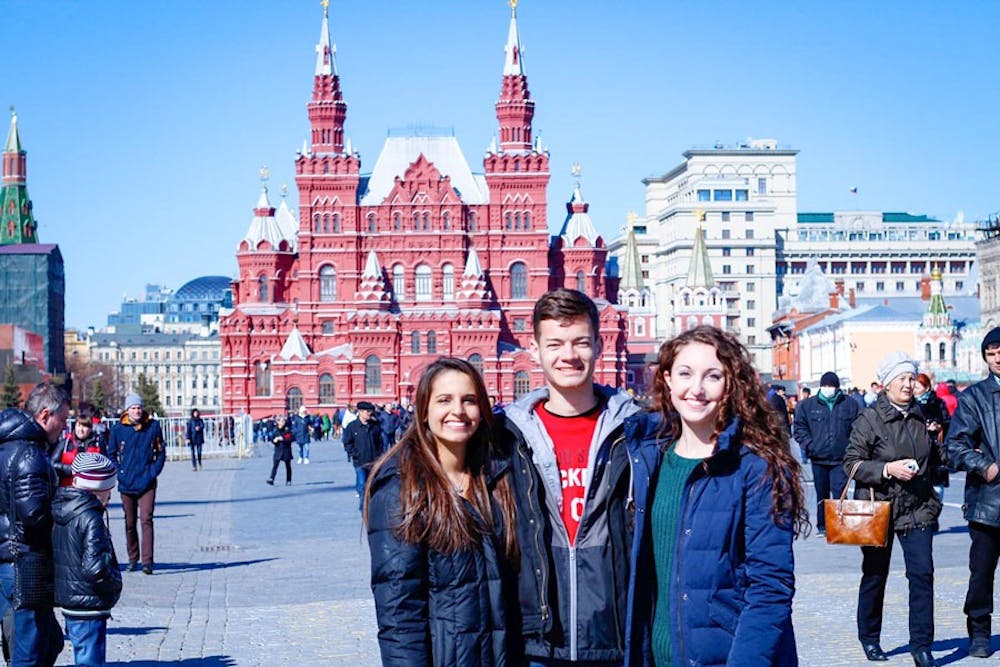
By Hope Bolinger | Echo
Recounting the events of a weeklong vacation takes a great deal of effort. Students who take Lighthouse trips during J-term still mull over details during chapel two months later. If someone struggles to summarize a journey that takes less than four weeks, what about the students who have been in other countries for four years?
A missionary kid (MK) often condenses several years into a few sentences when students or faculty ask them about their experiences abroad. Although those who hear about the journeys may have general ideas of what happened, many of the intriguing anecdotes like the unfinished Bulgarian buildings, the orphan girl in the denim overalls and a borrowed 2006 cardigan become blurred.
But a few MKs have many stories about the every day, the unusual and everything in between of their experiences abroad.
At the age of 3, freshman Noah Jurgensen visited Vladimir, Russia-the first of 27 trips in his lifetime. He recalled how introverted Russian culture is in public compared to the U.S.
"It is very common for Russians to not even smile in a picture with friends," Jurgensen said. "But if you get the chance to be with Russians in their own home, they are quite the opposite: loud, full of laughter and very hospitable."
His parents, who work with the Boaz Project, serve in several orphanages and host Taylor students on Spring Break mission trips. April Jurgensen, Noah Jurgensen's mother, remembers several anecdotes from the 22 orphanages Boaz has helped.
In 2002 in the Topolevo orphanage, she met an 11-year-old girl named Olya. April Jurgensen and Olya made crafts together, and April Jurgensen considered adopting the child. But she could not bear the thought to tear Olya from her two other sisters, Oksanna and Angela. "And Topolevo didn't allow adoptions," April Jurgensen said. "It killed me to say goodbye at the end of the week." Still, April Jurgensen met with Olya a few more times in 2006 and 2009.
But the orphanage experience April Jurgensen most distinctly remembers happened in 2014. An orphanage caregiver in the state-run facility kicked out the Taylor team and Boaz for political reasons.
"It put a sizeable crimp in our plans," April Jurgensen said. "(Instead of working at the previous orphanage), we took on a work project at the rehabilitation center we were serving in and took turns working with the children there. The students adapted graciously."
Noah Jurgensen said the collaboration with the Taylor community throughout his life impacted his decision to attend the university. In turn, Boaz seems to have made an impression on Taylor students as well. A few Taylor graduates now work at Boaz, according to Noah Jurgensen: David Mercier ('05)-who fell into a frozen spring pond on the first day of the 2010 trip, according to Noah Jurgensen-and Megan Weinhandl ('11).
Although junior Ellie Hershberger didn't engage other cultures as often as Noah Jurgensen, her family stayed in Sofia, Bulgaria for four years, from 2006-10. Because Bulgaria was still recovering from the effects of communism from decades before, Hershberger recalled the streets were dirty and a lot of the construction on buildings had been stopped. Still, Hershberger felt a lot safer in Bulgaria than the U.S. At 10 years old, she rode the Metro alone to different parts of the city frequently. "It was more normal to see kids walking around by themselves," Hershberger said.
While living in Bulgaria, no particular people stand out in Hershberger's mind because most of the time she attended a missionary co-op school comprised of about 20 other missionary families. But she does remember attending a Bulgarian church. After each service, she would hang out with other kids and play UNO and ping-pong. "Those kind(s) of memories stand out a lot," Hershberger said.





